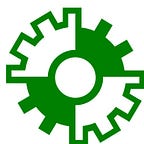I’m trying to figure out how people would start careers without set degrees. As I said, my Journalism degree only helped me to get in the doors of my first couple of jobs, and while it continued to form the foundation of my work, it was my accumulative experience that carried me forward. I’m not sure how I would have gotten here without it.
Also, I think young people tend to think of careers and jobs as absolutes. You study education to become a teacher, law to be a lawyer, Journalism to become a reporter, and so on. In my experience, however, I have seen people with a wide variety of college degrees take on different sorts of jobs. I believe in order for your suggestion to work, one would need to address the mentality that one must follow a specific path or track if they are going into a career.
My experience has also taught me that it is far too easy to become blind to other opportunities for learning that fall outside one’s profession. When I was in college, I strayed away from computer programming classes because I found them challenging, and because I felt safer sticking with the skills that I was already familiar with. A few years later, I started my first job as a web designer, and kicked myself for not trying harder to tough it out, and learn computer programming when I had the chance.
I recently attended a presentation from a MSU professor during World Usability Day who described the scope of the education that her User Experience Architect students obtain while they are working on their degrees. They basically dabble in all of the disciplines they might run into, so that they will be prepared in the future. When asked if she ever considered including anthropology classes, it seemed like it was already on her mind. I think that this is the approach that more departments would want to take if degrees were phased out.
So, the mentalities of students and of colleges would need to change.
The bottom line is that the professional world is not the same as it once was. Jobs were once defined as being either contracted or full time employment, work from home, or work in an established building, entrepreneurs, etc. Now, the lines are blurred, but in the future I think we will all need to be well rounded enough to sell ourselves under many different circumstances and environments. As I am writing this, I am writing as an individual but also in a professional capacity. By putting my words out there, I’m putting my name out there too, and it takes a lot of skill and self-awareness to do this well. Through technology and social media, professionals of tomorrow will need to represent themselves independently. This is the reality that college classes should prepare students for.
One thing I noticed midway through my career was that it would have been more efficient to have studied the job descriptions of different jobs that are out there, and then worked to get the skills which would have allowed me to get the positions which most interested me. Perhaps, in a way, this would have been more practical than earning a degree which requires very general classes. The professor from MSU shared a chart she shows to her students which did something similar: it showed the average job descriptions for the kinds of jobs they might fill with their degrees.
If I were to give a young person advice, it might be to try to better understand themselves, to stay in the habit of continuous learning, and to build their studies around the specific type of position they would like to fill someday. Maybe this would be the same as a degree, or maybe it would mean branching out in areas such as business and philosophy. But, students are not going to adjust their approach unless colleges change their approach first.
